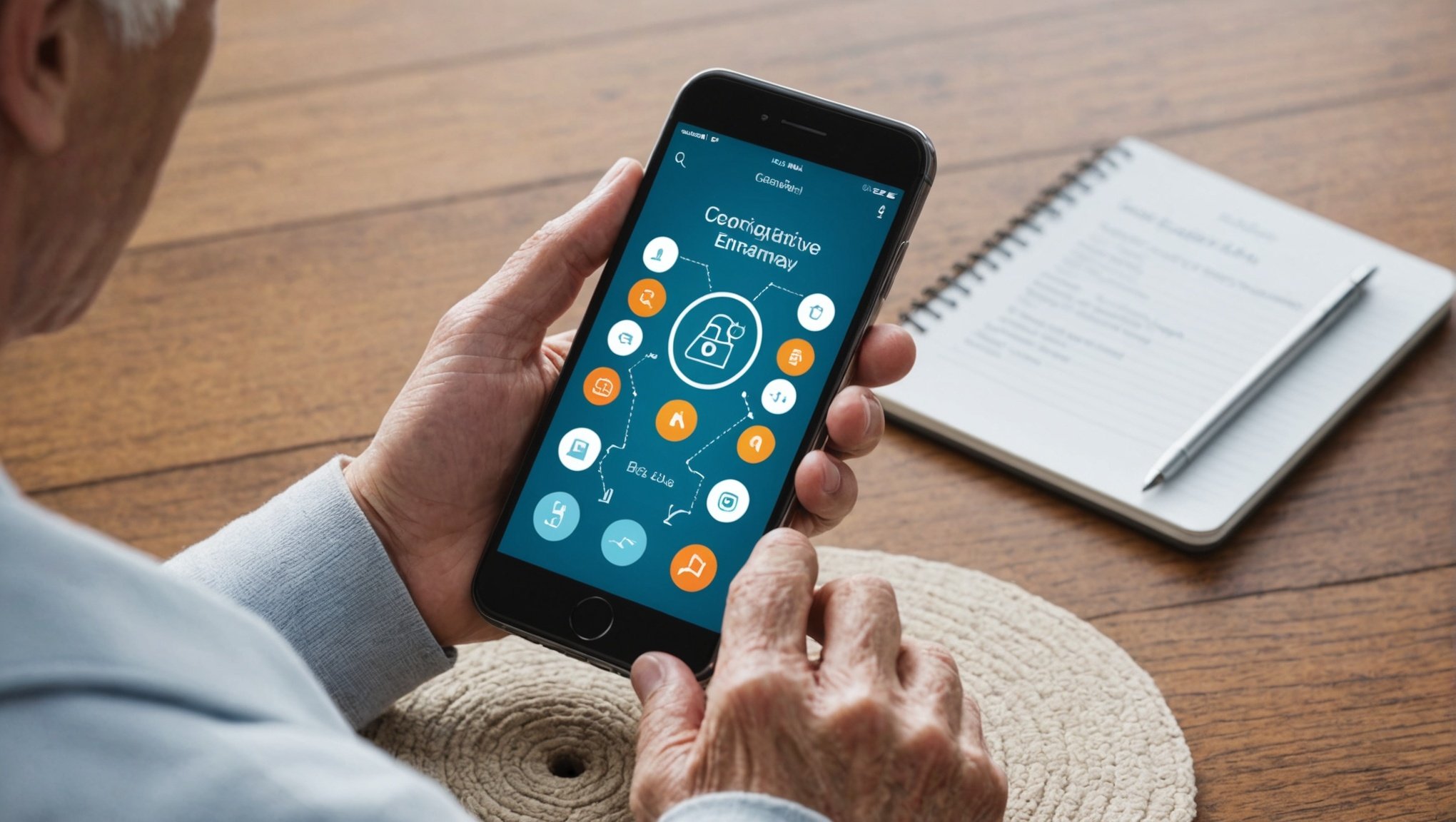In our rapidly evolving digital epoch, healthcare professionals and researchers are constantly in pursuit of novel approaches to enhance the quality of life for dementia patients. It’s no secret that dementia can be a challenging condition to cope with, both for patients and their caregivers. One area extensively researched and debated in recent times is the use of cognitive training through apps to improve memory functions. Specifically, the focus is on whether such interventions can make any real or substantial difference in the health of dementia patients. In this article, we will explore various studies and scholarly opinions on this topic to evaluate the effectiveness of these digital tools.
The Use of Cognitive Training Apps
Cognitive training through apps is a relatively new concept that has been gaining traction over the past few years. These applications are designed to stimulate certain areas of the brain through a series of games and exercises, with the aim of improving cognitive functions. The key role of these apps is to offer memory training to dementia patients and other older adults.
Also read : How Do Dietary Antioxidants Impact Vision Health in Aging Adults?
Research on cognitive training apps is still in its infancy, however, some studies have indicated promising results. According to an article published on Google Scholar, a study involving older adults showed that participants who used a cognitive training app for eight weeks exhibited improved memory recall. Another study on Pubmed showed that dementia patients who used a memory-enhancing app for six months demonstrated significant improvements in their cognitive abilities.
The Impact of Cognitive Training on Dementia Patients
Cognitive training, as a form of intervention, has been shown to have a positive impact on dementia patients. The training encourages the brain to work harder, leading to increased brain activity and potentially slowing down the progression of dementia.
In the same genre : Is There a Link Between Virtual Learning and Increased Physical Activity in Teenagers?
A study carried out by the Alzheimer’s Association revealed that dementia patients who participated in regular cognitive training demonstrated a slower decline in their cognitive abilities compared to those who did not. The study also found that these patients displayed improved mental agility and memory function.
However, it’s worth mentioning that not all studies present the same results. Some research suggests that while cognitive training may enhance certain cognitive areas in dementia patients, such as attention and reasoning, it may not significantly improve memory function.
The Role of Caregivers in Implementing Cognitive Training
While cognitive training apps are easily accessible and can be used by anyone, the role of caregivers in implementing and supervising this training is vital. Caregivers can provide the necessary guidance and motivation to dementia patients to use these apps consistently.
Furthermore, caregivers can monitor the patients’ progress, identify any potential issues, and provide feedback to healthcare professionals. This constant interaction and feedback between caregivers, patients, and healthcare professionals can ensure a more effective implementation of cognitive training.
The Future of Cognitive Training Apps
With advances in technology and our increasing understanding of the human brain, the future of cognitive training apps looks promising. Emerging technologies such as artificial intelligence (AI) and machine learning offer exciting possibilities for the development of more sophisticated and personalized cognitive training apps.
One area of particular interest is the use of AI to create personalized training programs. These programs can be tailored to each individual’s specific needs and capabilities, resulting in more effective and efficient training.
Additionally, developments in the field of neuroimaging could potentially enhance the effectiveness of cognitive training apps. By combining cognitive training with neuroimaging, it may be possible to track the changes in brain activity in real-time as a patient engages with a cognitive training app. This could provide valuable insights into how different types of cognitive training affect the brain and could help in developing more effective interventions.
Understanding the Limitations
Despite the potential benefits of cognitive training apps, it’s essential to acknowledge their limitations. The effectiveness of these apps can vary significantly from one individual to another, and not all patients may benefit from them. Additionally, while these games and exercises can stimulate the brain, they are not a cure for dementia. They should be viewed as a tool to complement other forms of treatment and care, rather than a standalone solution.
Moreover, the scientific evidence supporting the use of cognitive training apps is still limited. More rigorous, large-scale studies need to be conducted to establish their effectiveness conclusively. Until then, it’s crucial for patients and caregivers to consult healthcare professionals before incorporating these apps into a dementia care plan.
In conclusion, while we are still learning about the benefits and limitations of cognitive training apps, they offer a promising and accessible tool to improve the cognitive health of dementia patients. The future advancements in this field are eagerly awaited and will undoubtedly bring new and improved options for cognitive training.
Optimizing Cognitive Training Apps
Researchers are tirelessly working on optimizing cognitive training apps to enhance their effectiveness and usability. Utilizing technological advancements and scientific discoveries, cognitive training apps are becoming increasingly sophisticated and personalized. The incorporation of artificial intelligence (AI) and machine learning is revolutionizing the way these apps function, making them more adaptable to individual needs.
An article on PubMed highlighted the application of AI in cognitive training apps is assisting in the creation of personalized training programs. These programs can modify themselves according to the cognitive capabilities and progress of the individual, making the training more efficient. This personalization aspect is particularly beneficial for older adults and dementia patients as it helps keep them engaged, motivated, and yields better results.
Similarly, advancements in neuroimaging are promising for the future of cognitive training. As per a study on Google Scholar, using neuroimaging along with cognitive training apps can track changes in brain activity in real-time. This real-time feedback could help understand how different types of cognitive training affect the brain, further improving interventions.
On the other hand, brain games are another approach being adopted by these apps. The element of fun and challenge in these games can make cognitive training less daunting and more engaging for dementia patients. A healthy lifestyle, coupled with regular use of these brain training apps, could potentially slow cognitive decline and improve cognitive functions.
A Balanced Perspective on Cognitive Training Apps
While cognitive training apps offer hope for improving memory functions in dementia patients, it’s essential not to overlook their limitations. The effectiveness of these apps is not universal. While some individuals may benefit significantly, others may not see any substantial improvements. Therefore, cognitive training apps should not be seen as a standalone solution but as part of a comprehensive care plan for dementia patients.
The scientific community echoes this sentiment. While some studies indicate potential benefits, the overall evidence remains inconclusive. More large-scale, rigorous research is needed to definitively establish the efficacy of these apps. Therefore, it’s crucial for patients and caregivers to consult with healthcare professionals before incorporating these apps into their regime.
Moreover, the role of caregivers cannot be understated. Their continuous engagement, motivation, and supervision can significantly influence the effectiveness of these apps. They are in the best position to monitor progress, identify potential issues, and provide feedback to healthcare professionals, ensuring a more successful implementation of cognitive training.
To conclude, cognitive training apps represent an exciting development in the realm of dementia care. They are accessible, personalized, and promise to enhance cognitive functions. However, remembering their limitations is equally important. A balanced perspective, including consultation with healthcare professionals and a healthy lifestyle, can provide dementia patients with the best chance of benefiting from these apps. While we await more definitive evidence, the potential of these apps cannot be overlooked, and future advancements in this field are eagerly anticipated.











